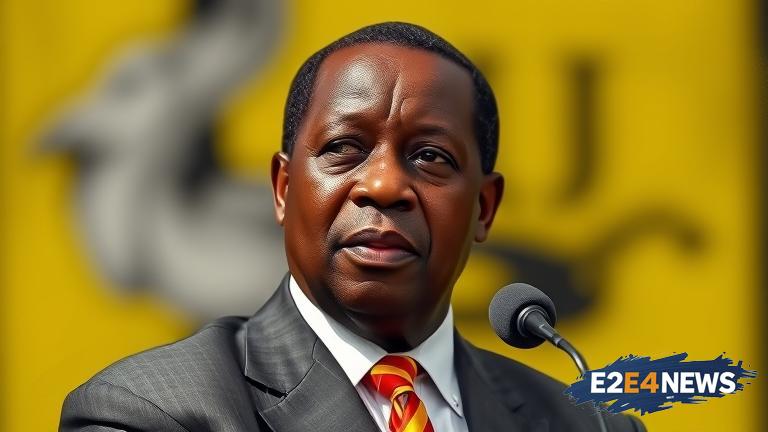In a recent address, President Yoweri Museveni of Uganda underscored the critical importance of implementing comprehensive reforms in the country’s governance and education sectors. He emphasized that these reforms are essential for Uganda’s development and prosperity. The President highlighted the need for a more effective and efficient governance system, which would enable the country to better utilize its resources and address the pressing challenges facing its citizens. Furthermore, he stressed the importance of education in equipping Ugandans with the necessary skills and knowledge to compete in the global economy. Museveni noted that the current education system is in need of significant overhaul to ensure that it is relevant, effective, and accessible to all. He proposed the introduction of new curricula and teaching methods that would focus on practical skills and vocational training, in addition to theoretical knowledge. The President also emphasized the need for increased investment in education infrastructure, including the construction of new schools and the renovation of existing ones. Moreover, he called for the recruitment and training of more qualified teachers, as well as the implementation of performance-based evaluation systems to ensure accountability and quality in education. In the governance sector, Museveni advocated for the decentralization of power and the empowerment of local communities to take charge of their own development. He also stressed the need for transparency and accountability in government, and proposed the establishment of independent institutions to oversee the management of public resources. The President’s call for reforms has been welcomed by many Ugandans, who see it as a necessary step towards addressing the country’s development challenges. However, some critics have expressed skepticism about the government’s ability to implement these reforms, citing past failures and the need for more concrete action. Despite these concerns, Museveni’s initiative has sparked a national conversation about the need for governance and education reforms, and has highlighted the importance of collective action in driving development and prosperity in Uganda. The President’s proposals have also been informed by the country’s experience with past development initiatives, which have often been hindered by inefficiencies and corruption. By learning from these experiences, Museveni hopes to create a more effective and sustainable development framework that would benefit all Ugandans. In conclusion, President Museveni’s call for governance and education reforms is a significant step towards addressing Uganda’s development challenges. The success of these reforms will depend on the government’s ability to implement them effectively, as well as the participation and engagement of all stakeholders, including citizens, civil society, and the private sector. As Uganda continues to navigate the complexities of development, it is clear that comprehensive reforms in governance and education will be essential for achieving prosperity and a better future for all Ugandans. The country’s development partners, including international organizations and donor countries, have also been encouraged to support these reforms, and to provide technical and financial assistance where necessary. Ultimately, the implementation of these reforms will require a collective effort and a shared commitment to the development and prosperity of Uganda. By working together, Ugandans can create a brighter future for themselves and for generations to come. The President’s initiative has also highlighted the importance of regional and international cooperation in driving development, and has underscored the need for Uganda to engage with other countries and organizations to share experiences and best practices. As the country moves forward with these reforms, it is likely that there will be challenges and obstacles to overcome, but with persistence and determination, Uganda can achieve its development goals and become a model for other countries in the region. The reforms proposed by President Museveni are also expected to have a positive impact on the country’s economy, by creating a more skilled and productive workforce, and by improving the business environment and encouraging investment. In addition, the reforms are likely to improve the delivery of public services, including healthcare and infrastructure, and to enhance the overall quality of life for Ugandans. Overall, the President’s call for governance and education reforms is a significant step towards creating a more prosperous and developed Uganda, and it is likely to have far-reaching consequences for the country and its people.
